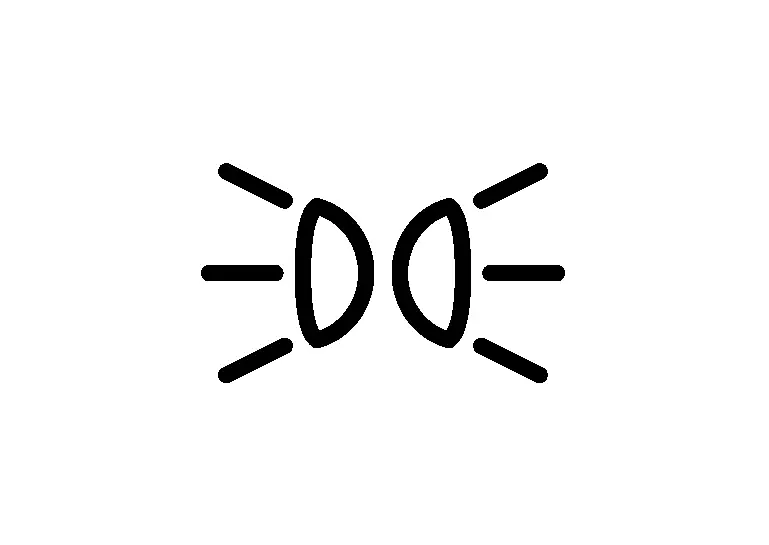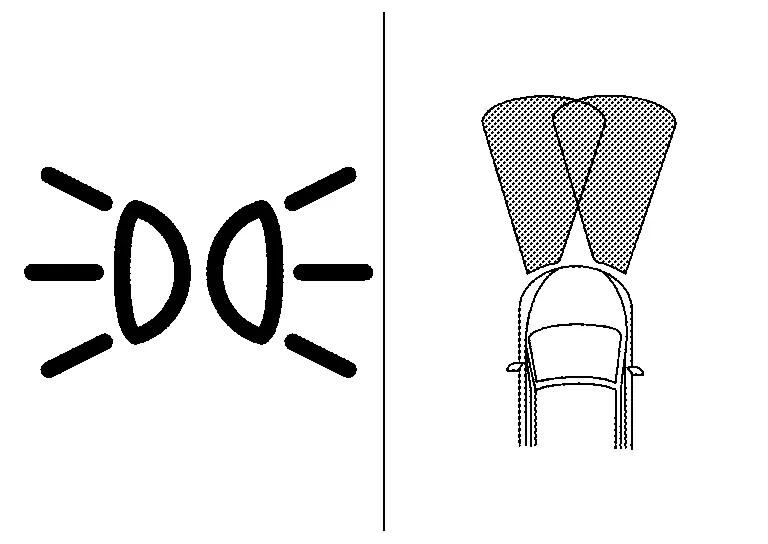Nissan Pathfinder: Exterior Lighting System - System Description
Component Parts ➤ Nissan Pathfinder 2026
System Nissan Pathfinder SUV
Headlamp System
System Description
SYSTEM DIAGRAM
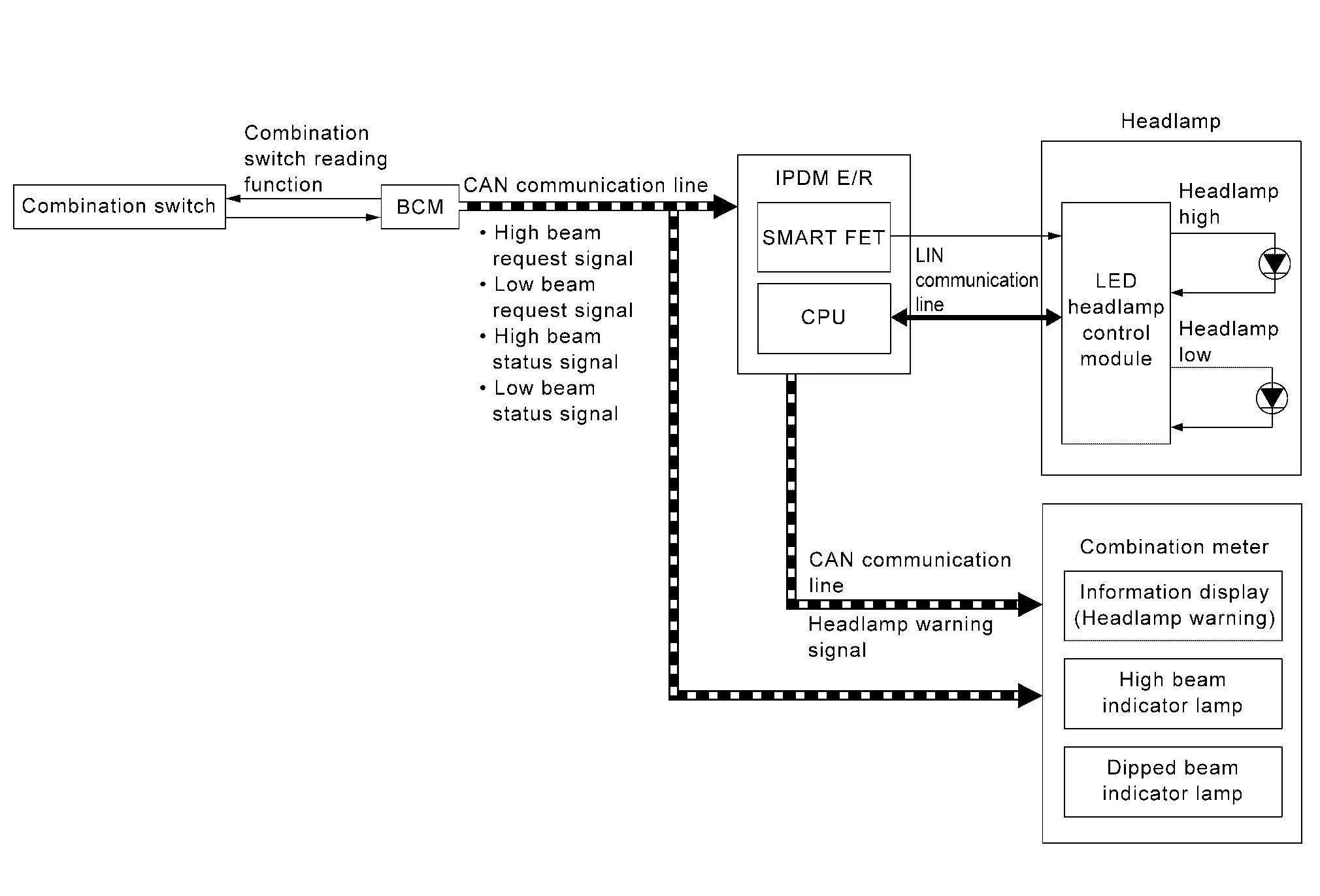
| Component | Function | |
|---|---|---|
| Headlamp |
Headlamp (HI) (LED headlamp) |
LED headlamp control module supplies power supply voltage to headlamp (HI), and turns the headlamp (HI) ON. |
|
Headlamp (LO) (LED headlamp) |
LED headlamp control module supplies power supply voltage to headlamp (LO), and turns the headlamp (LO) ON. | |
| LED headlamp control module | Refer to LED Headlamp Control Module. | |
| IPDM E/R |
|
|
| BCM |
|
|
| Combination meter |
|
|
| Combination switch | Lighting and turn signal switch | Inputs the each switch condition signal to BCM. |
OUTLINE
Headlamp is controlled by combination switch reading function and headlamp control function of the BCM, the Smart FET control function and LIN communication function of the IPDM E/R.
Signal transmission function list
| Signal name | Input | Output | Description |
|---|---|---|---|
| Combination switch signal | Combination switch | BCM | Transmits the combination switch signal to the BCM. |
| High beam request signal | BCM | IPDM E/R (CAN) | Transmits the high beam request signal via CAN communication. |
| Low beam request signal | BCM | IPDM E/R (CAN) | Transmits the low beam request signal via CAN communication. |
| High beam status signal | BCM | Combination meter (CAN) | Transmits the high beam status signal via CAN communication. |
| Low beam status signal | BCM | Combination meter (CAN) | Transmits the low beam status signal via CAN communication. |
| Headlamp warning signal | IPDM E/R | Combination meter (CAN) | Transmits the headlamp warning signal via CAN communication. |
HEADLAMP (LO) OPERATION
-
BCM detects the combination switch (lighting and turn signal switch) condition with the combination switch reading function.
-
BCM transmits the low beam request signal to the IPDM E/R and low beam status signal to the combination meter via CAN communication according to the headlamp (LO) ON condition.
Headlamp (LO) ON condition (When any of the following conditions are satisfied):
-
Lighting switch 2ND
-
Lighting switch AUTO (only when the illumination judgement by auto light function is ON). Refer to System Description.
-
Lighting switch PASS
-
-
IPDM E/R turns the integrated Smart FET ON according to the low beam request signal, and transmits the control signal to the LED headlamp control module via LIN communication.
-
IPDM E/R transmits the request to the LED headlamp control module via LIN communication according to the low beam request signal.
-
LED headlamp control module turns the headlamp (LO) ON according to the control signal and request from the IPDM E/R via LIN communication.
-
Combination meter turns the dipped beam indicator lamp according to the low beam status signal (full TFT meter models).
HEADLAMP (HI) OPERATION
-
BCM transmits the high beam request signal to the IPDM E/R and high beam status signal to the combination meter via CAN communication according to the headlamp (HI) ON condition.
Headlamp (HI) ON condition (when any of the following conditions are satisfied):
-
Lighting switch HI with the lighting switch 2ND
-
Lighting switch HI with the lighting switch AUTO (only when the illumination judgement by auto light function is ON). Refer to System Description.
-
High beam assist switch ON with the lighting switch AUTO (only when the illumination judgement by auto light function is ON and the illumination judgement by high beam assist system is ON). Refer to System Description.
-
Lighting switch PASS
-
-
IPDM E/R turns the integrated Smart FET ON according to the high beam request signal, and transmits the control signal to the LED headlamp control module via LIN communication.
-
IPDM E/R transmits the request to the LED headlamp control module via LIN communication according to the high beam request signal.
-
LED headlamp control module turns the headlamp (HI) ON according to the control signal and request from the IPDM E/R via CAN communication.
-
Combination meter turns the high beam indicator lamp ON according to the high beam status signal.
HEADLAMP WARNING OPERATION
Headlamp warning warns the driver that there is a malfunction in LED headlamp system. Refer to Headlamp Warning.
LED HEADLAMP
-
Semiconductor device (Light emitting diode: LED), which is illuminated when forward bias electric voltage is applied, is adopted as the source of light instead of halogen bulb or xenon bulb.
-
Comparing to halogen headlamp or xenon headlamp, LED headlamp is electrically power saving, durable, and is illuminated in the similar color to the sunlight. Bright, natural, and eye-friendly visibility can be obtained.
Precautions for Trouble Diagnosis:
Representative malfunction examples are; “Light does not turn ON”, “Light blinks”, and “Brightness is inadequate.” Such malfunctions, however, occasionally by occur LED control module malfunction or lamp case malfunction. Specify the malfunctioning part with the diagnosis procedure.
CAUTION:
-
Never touch the harness, LED headlamp control module, the inside and metal part of lamp when turning the headlamp ON or operating the lighting switch, for preventing electrical shock.
-
Never work with wet hands, for preventing electrical shock.
-
Never perform LED headlamp control module circuit diagnosis with a circuit tester or an equivalent.
-
Temporarily install the headlamps on the Nissan Pathfinder vehicle. Always connect power supply to the connector (vehicle side) when checking ON/OFF status.
-
Disconnect the battery negative terminal before disconnecting the lamp socket connector or the harness connector.
-
Check for blown (open) of the fusible link(s), open around connector, short, disconnection if the symptom is caused by electric error.
-
Always check for deformation or hole of headlamp housing and engagement of bulb cover. Otherwise, water may enter into headlamp because of damage of headlamp housing and contact to LED headlamp control module connector. The normal operation may be inhibited when short circuit to power supply is detected.
 NOTE:
NOTE:
Turn the switch OFF once before turning ON, if the ON/OFF is inoperative.
Auto Light System
System Description
SYSTEM DIAGRAM
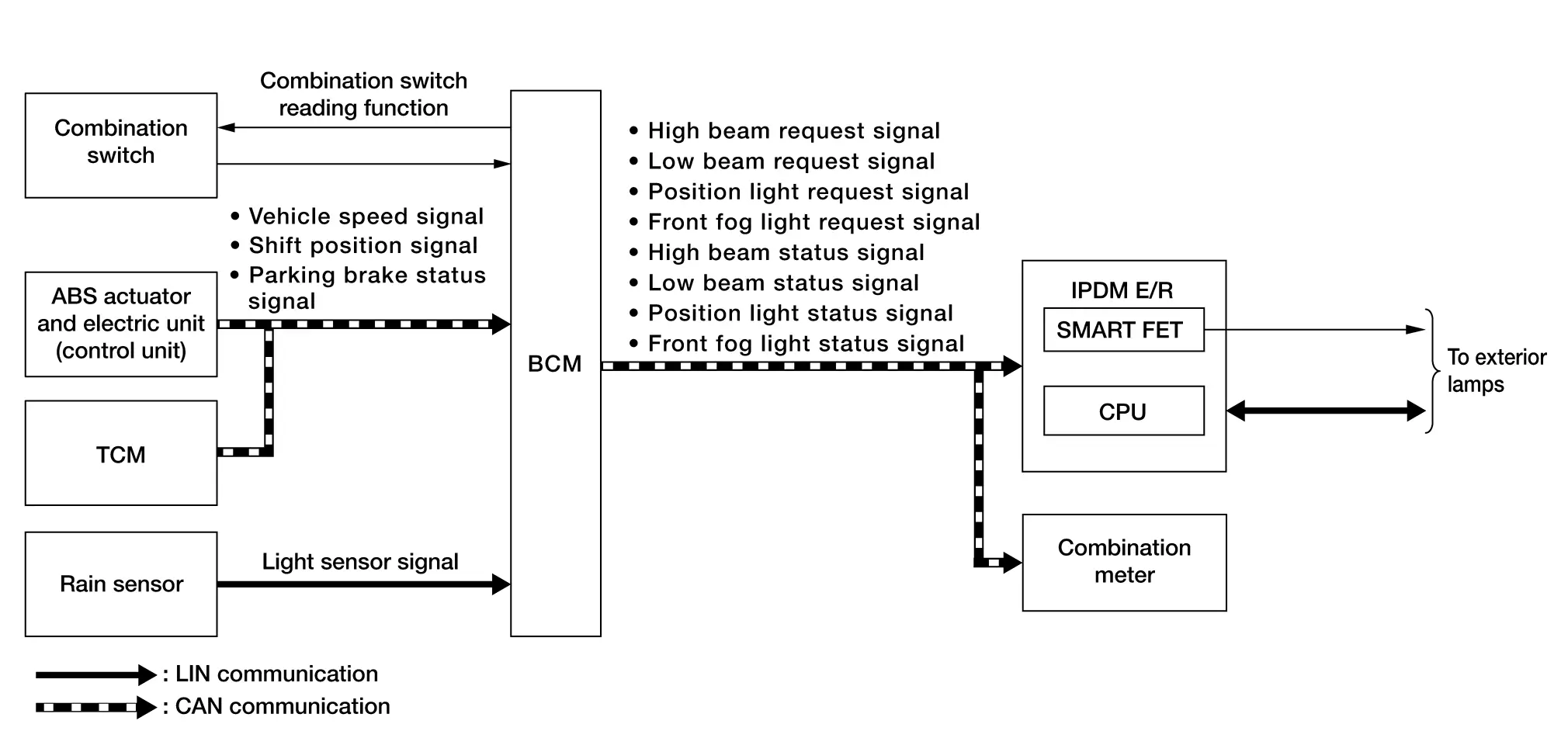
| Component | Function | |
|---|---|---|
| Rain sensor | Refer to Rain Sensor. | |
| IPDM E/R |
|
|
| BCM |
|
|
| Combination meter | Turns the indicator lamps ON/OFF according to the status signal from the BCM via CAN communication. | |
| ABS actuator and electric unit (control unit) | ABS actuator and electric unit (control unit) transmits Nissan Pathfinder vehicle speed signal to BCM via CAN communication. | |
| TCM | TCM transmits shift position signal to the BCM via CAN communication. | |
| Combination switch | Lighting and turn signal switch | Inputs the each switch condition signal to the BCM. |
OUTLINE
-
Auto light system is controlled by each function of the BCM and IPDM E/R.
Control by BCM:
-
Combination switch reading function
-
Auto light function
-
Wiper linked auto lighting function
-
Delay timer function
Control by IPDM E/R:
-
Smart FET control function
-
LIN communication function
-
-
Auto light system has the auto light function, wiper linked auto lighting function and delay timer function.
-
Auto light function automatically turns ON/OFF the exterior lamps*, depending on the outside brightness.
-
Wiper linked auto lighting function automatically turns ON/OFF the exterior lamps* when the lighting switch is in the AUTO position, according to a front wiper operation.
-
Delay timer function turns the exterior lamps* OFF depending on the Nissan Pathfinder vehicle condition with the auto light function when the ignition switch is placed OFF.
-
*: Headlamp (LO/HI), front fog lamp, parking lamp, license plate lamp, side marker lamp and tail lamp.
 NOTE:
NOTE:
-
Headlamp (HI) depends on the combination switch (lighting and turn signal switch) condition.
-
Front fog lamp depends on the combination switch (lighting and turn signal switch) condition.
Signal transmission function list
| Signal name | Input | Output | Description |
|---|---|---|---|
| Combination switch signal | Combination switch | BCM | Transmits the combination switch signal to the BCM. |
| Nissan Pathfinder Vehicle speed signal | ABS actuator and electric unit (control unit) | BCM (CAN) | Transmits the Nissan Pathfinder vehicle speed signal via CAN communication. |
| Shift position signal | TCM | BCM (CAN) | Transmits the shift position signal via CAN communication. |
| Parking brake status signal | ABS actuator and electric unit (control unit) | BCM (CAN) | Transmits the parking brake status signal via CAN communication. |
| Light sensor signal | Rain sensor | BCM (LIN) | Transmits the light sensor signal via LIN communication |
| High beam request signal | BCM | IPDM E/R (CAN) | Transmits the high beam request signal via CAN communication. |
| Low beam request signal | BCM | IPDM E/R (CAN) | Transmits the low beam request signal via CAN communication. |
| Position light request signal | BCM | IPDM E/R (CAN) | Transmits the position light request signal via CAN communication. |
| Front fog light request signal | BCM | IPDM E/R (CAN) | Transmits the front fog light request signal via CAN communication. |
| High beam status signal | BCM | Combination meter (CAN) | Transmits the high beam status signal via CAN communication. |
| Low beam status signal | BCM | Combination meter (CAN) | Transmits the low beam status signal via CAN communication. |
| Position light status signal | BCM | Combination meter (CAN) | Transmits the position light status signal via CAN communication. |
| Front fog light status signal | BCM | Combination meter (CAN) | Transmits the front fog light status signal via CAN communication. |
AUTO LIGHT FUNCTION
-
BCM detects the combination switch (lighting and turn signal switch) condition with the combination switch reading function.
-
BCM detects the Nissan Pathfinder vehicle condition that is required for auto light control with the following signals:
-
Parking brake status signal [received from ABS actuator and electric unit (control unit) via CAN communication]
-
Nissan Pathfinder Vehicle speed signal [received from ABS actuator and electric unit (control unit) via CAN communication]
-
Shift position signal (received from TCM via CAN communication)
-
-
BCM supplies voltage to the rain sensor when the ignition switch is placed ON.
-
The rain sensor transmits the light sensor signal to the BCM via LIN communication according to the brightness of ambient light
-
When ignition switch is placed ON, BCM detects outside brightness from the light sensor signal and judges ON/OFF condition of each exterior lamp, depending on the outside brightness condition.
-
BCM transmits each request signal to the IPDM E/R and each status signal to the combination meter via CAN communication, according to ON/OFF condition by the auto light function.
Lighting conditions for lighting switch AUTO (when all of the following conditions are satisfied):
-
Ignition switch ON
-
Parking brake is released or Nissan Pathfinder vehicle speed is 2.5 MPH (4 km/h) or more
-
Lighting judgement ON depending on the brightness outside of Nissan Pathfinder vehicle
Lighting off conditions for lighting switch AUTO (when any of the following conditions are satisfied):
-
Ignition switch OFF
-
Nissan Pathfinder Vehicle speed is 1.8 MPH (3 km/h) or less and parking brake is operated*
*: Only before releasing the parking brake. After releasing the parking brake, it will not turn lights OFF if the parking brake is operated again.
-
Lighting judgement OFF depending on the brightness outside of Nissan Pathfinder vehicle
Headlamp lighting conditions when the lighting switch is 1ST (when all of the following conditions are satisfied):
-
Ignition switch ON
-
Nissan Pathfinder Vehicle speed is 2.5 MPH (4 km/h) or more, or parking brake is released and other than shift selector P range
-
Lighting judgement ON depending on the brightness outside of Nissan Pathfinder vehicle
Headlamp lighting off conditions when the lighting switch is 1ST (when any of the following conditions are satisfied):
-
Ignition switch OFF
-
Nissan Pathfinder Vehicle speed is 1.8 MPH (3 km/h) or less and parking brake is operated
-
Vehicle speed is 1.8 MPH (3 km/h) or less and select lever is P range
-
Lighting judgement OFF depending on the brightness outside of Nissan Pathfinder vehicle
-
WIPER LINKED AUTO LIGHTING FUNCTION
BCM turns each exterior lamp ON when the within 60 seconds detecting 4 operations of the front wiper while the lighting switch is in AUTO position.
 NOTE:
NOTE:
BCM turns OFF the headlamps 3 seconds after the front wiper switch is turned OFF.
DELAY TIMER FUNCTION
BCM turns the exterior lamps OFF depending on the vehicle condition with the auto light function when the ignition switch is placed OFF.
-
Turns the exterior lamps OFF 30 seconds after the ignition switch is placed OFF.
-
Delay timer function turns OFF, when the engine is running or the lighting switch is in any position other than AUTO.
 NOTE:
NOTE:
When the lighting switch is in any position other than AUTO, the auto light system function switches to the exterior lamp battery saver function.
High Beam Assist System
System Description
SYSTEM DIAGRAM
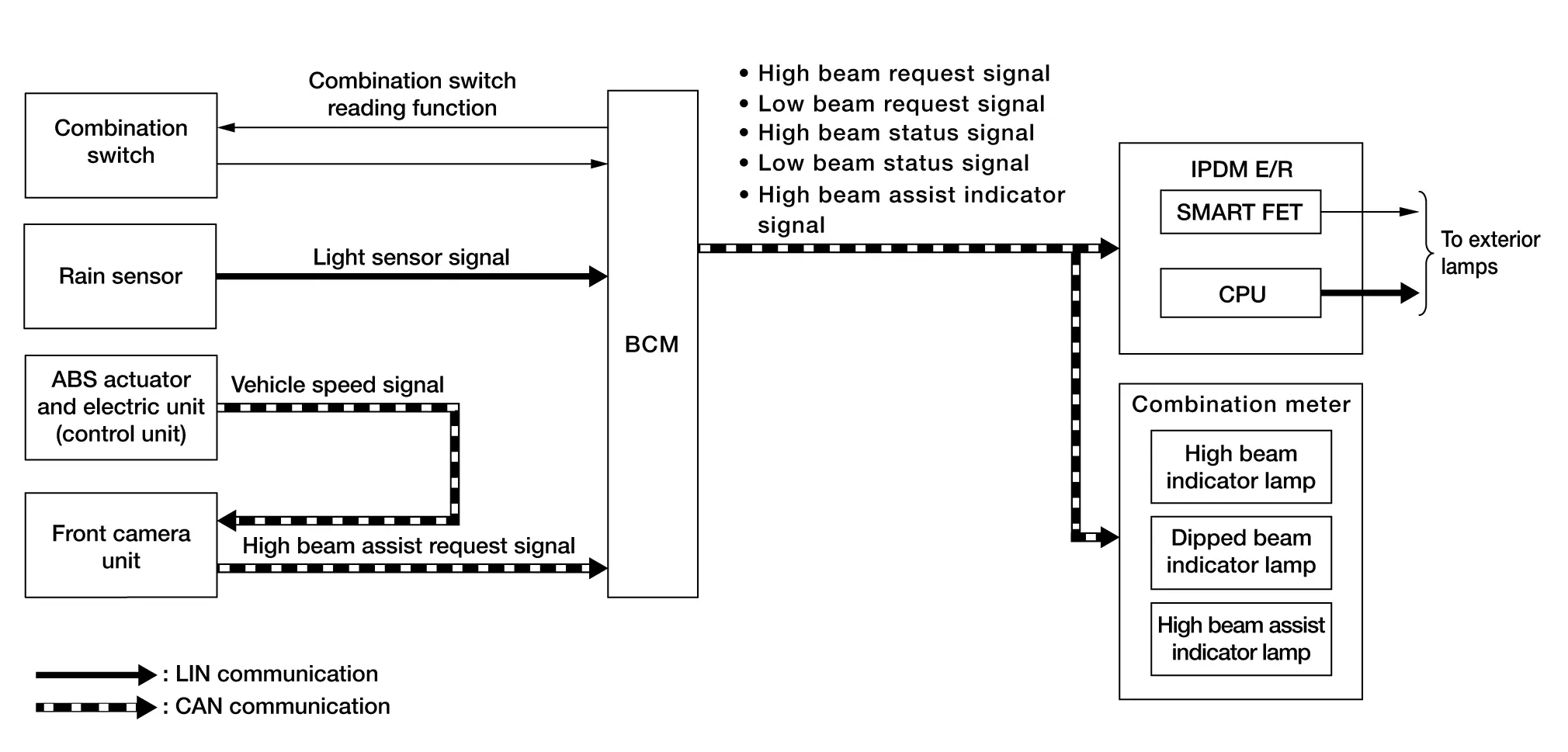
| Component | Function | |
|---|---|---|
| Rain sensor | Refer to Rain Sensor. | |
| Front camera unit | Judges the Nissan Pathfinder vehicle status from each signal in order to control high beam assist. | |
| IPDM E/R | Transmits the control signal and request to the LED headlamp control module via LIN communication according with the request from BCM via CAN communication. | |
| BCM |
|
|
| Combination meter | Turns the indicator lamp ON/OFF according to the status signal from the BCM via CAN communication. | |
| ABS actuator and electric unit (control unit) | ABS actuator and electric unit (control unit) transmits Nissan Pathfinder vehicle speed signal to front camera unit via CAN communication. | |
| Combination switch | Lighting and turn signal switch | Inputs each switch condition signal to the BCM. |
OUTLINE
-
The high beam assist (HBA) system is a system that can reduce the driver's switch operation load. The system automatically switches the headlamp to low beam mode when a Nissan Pathfinder vehicle ahead or an oncoming vehicle appears, while driving the vehicle with the headlamps in high beam mode at night.
-
When the HBA system operation permission conditions are satisfied, the HBA indicator lamp in the combination meter turns ON and informs that HBA is in operation.
-
The HBA system is controlled by each function of the BCM, IPDM E/R and front camera unit.
Control by BCM:
-
Combination switch reading function
-
Auto light function
-
High beam assist control function
-
Headlamp control function
Control by IPDM E/R:
-
Smart FET control function
-
LIN communication function
Control by front camera unit:
-
High beam assist control function
-
Signal transmission function list
| Signal name | Input | Output | Description |
|---|---|---|---|
| Combination switch signal | Combination switch | BCM | Transmits the combination switch signal to the BCM. |
| Light sensor signal | Rain sensor | BCM (LIN) | Transmits the light sensor signal via LIN communication |
| Nissan Pathfinder Vehicle speed signal | ABS actuator and electric unit (control unit) | Front camera unit (CAN) | Transmits the Nissan Pathfinder vehicle speed signal via CAN communication. |
| High beam assist request signal | Front camera unit | BCM (CAN) | Transmits the high beam assist request signal via CAN communication. |
| High beam request signal | BCM | IPDM E/R (CAN) | Transmits the high beam request signal via CAN communication. |
| Low beam request signal | BCM | IPDM E/R (CAN) | Transmits the low beam request signal via CAN communication. |
| High beam status signal | BCM | Combination meter (CAN) | Transmits the high beam status signal via CAN communication. |
| Low beam status signal | BCM | Combination meter (CAN) | Transmits the low beam status signal via CAN communication. |
| High beam assist indicator signal | BCM | Combination meter (CAN) | Transmits the high beam assist indicator signal via CAN communication. |
OPERATION DESCRIPTION
-
BCM detects the combination switch (lighting and turn signal switch) condition with the combination switch reading function.
-
BCM transmits the high beam assist indicator signal to the combination meter via CAN communication when the high beam assist system operation permission conditions are satisfied.
High beam assist system operation permission conditions (when all of following conditions are satisfied):
-
Ignition switch ON
-
Lighting switch AUTO (only when the illuminating judgement by auto light function is ON). Refer to System Description.
-
High beam assist switch ON
-
-
Combination meter turns the high beam assist indicator lamp ON according to the high beam assist indicator signal.
-
Front camera unit detects the Nissan Pathfinder vehicle status and ambient status that are required for high beam assist control with the following signals:
-
Nissan Pathfinder Vehicle speed signal [received from ABS actuator and electric unit (control unit) via CAN communication]
-
Ambient light signal (detect from front camera unit)
-
Image sensor signal (detect from front camera unit)
-
-
Front camera unit judges the current recommended beam according to the Nissan Pathfinder vehicle status and ambient condition, and transmits the high beam assist request signal (headlamp HI operation/headlamp LO operation) to the BCM via CAN communication.
-
BCM switches the headlamp LO operation/headlamp HI operation according to the high beam assist request signal while the high beam assist system operation permission conditions are satisfied. For headlamp operation, refer to System Description.
RECOMMENDED BEAM JUDGEMENT BY FRONT CAMERA UNIT
Headlamp HI Operation Request
Front camera unit requests headlamp HI operation to the BCM when all of the following conditions are satisfied:
-
Detects the vehicle speed is approx. 19 MPH (30 km/h) or more.
-
Recognizes the ambient condition is dark.
-
Recognizes there is no oncoming Nissan Pathfinder vehicle or no vehicle ahead in front of the vehicle.
Headlamp LO Operation Request
Front camera unit requests headlamp LO operation to the BCM when either of the following conditions are satisfied:
-
Detects the vehicle speed is approx. 12 MPH (20 km/h) or less.
-
Recognizes the ambient condition is bright.
-
Recognizes there is an oncoming Nissan Pathfinder vehicle or vehicle ahead in front of the vehicle.
Daytime Running Light System
System Description
SYSTEM DIAGRAM
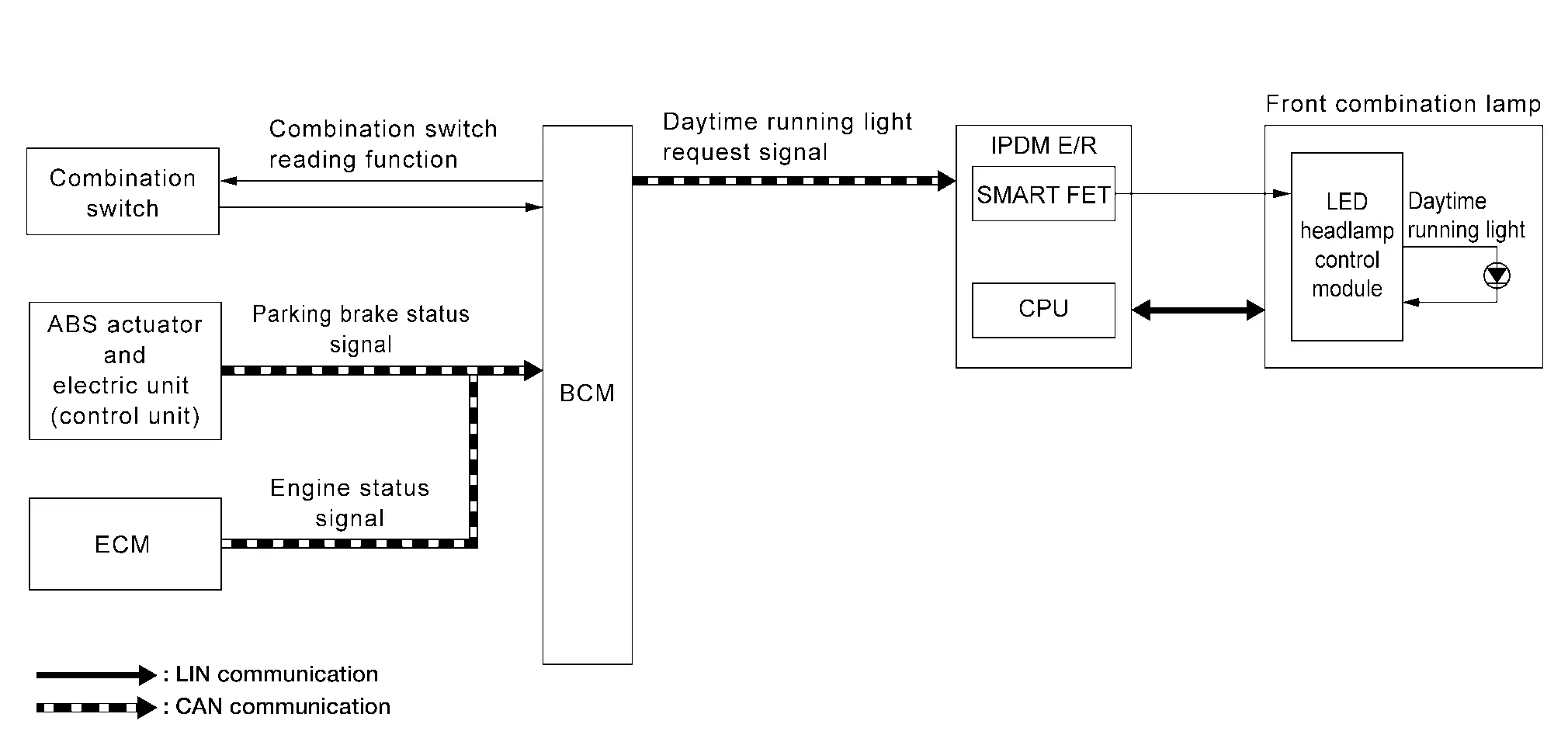
| Component | Function | |
|---|---|---|
| Front combination lamp | Daytime running light | LED headlamp control module supplies power supply to the daytime running light, and turns the daytime running light ON. |
| LED headlamp control module | Refer to LED Headlamp Control Module. | |
| IPDM E/R | Transmits the control signal and request to the LED headlamp control module via LIN communication according with the request from the BCM via CAN communication. | |
| BCM |
|
|
| ECM | Transmits the engine status signal to the BCM via CAN communication. | |
| ABS actuator and electric unit (control unit) | Transmits the parking brake status signal to the BCM via CAN communication. | |
| Combination switch | Lighting and turn signal switch | Inputs each switch condition signal to the BCM. |
OUTLINE
Daytime running light is controlled by the daytime running light control function and combination switch reading function of the BCM, and the Smart FET control function and LIN communication function of the IPDM E/R.
Signal transmission function list
| Signal name | Input | Output | Description |
|---|---|---|---|
| Combination switch signal | Combination switch | BCM | Transmits the combination switch signal to the BCM. |
| Parking brake status signal | ABS actuator and electric unit (control unit) | BCM (CAN) | Transmits the parking brake status signal via CAN communication. |
| Engine status signal | ECM | BCM (CAN) | Transmits the engine status signal via CAN communication. |
| Daytime running light request signal | BCM | IPDM E/R (CAN) | Transmits the daytime running light request signal via CAN communication. |
DAYTIME RUNNING LIGHT OPERATION
-
BCM detects the combination switch (lighting and turn signal switch) condition by the combination switch reading function.
-
BCM detects Nissan Pathfinder vehicle condition depending on the engine status signal and parking brake status signal [received from ECM and ABS actuator and electric unit (control unit) via CAN communication].
-
BCM transmits the daytime running light request signal to the IPDM E/R via CAN communication according to the daytime running light ON condition.
Daytime running light ON condition:
-
Engine running, parking brake released and any following conditions are satisfied:
-
Lighting switch OFF
-
Lighting switch 1ST
-
Lighting switch AUTO (only when the illumination judgement by auto light function is OFF). Refer to System Description.
-
-
-
IPDM E/R turns the integrated Smart FET ON according to the daytime running light request signal, and transmits the control signal to the LED headlamp control module.
-
IPDM E/R transmits the request to the LED headlamp control module via LIN communication according to the daytime running light request signal.
-
LED headlamp control module turns the daytime running light ON according to the control signal and request from the IPDM E/R via LIN communication.
 NOTE:
NOTE:
Daytime running light and parking lamp use a common light source. When the daytime running light is turned ON while parking lamp is ON, the parking lamp/daytime running light is brightened.
Turn Signal and Hazard Warning Lamp System
System Description
SYSTEM DIAGRAM
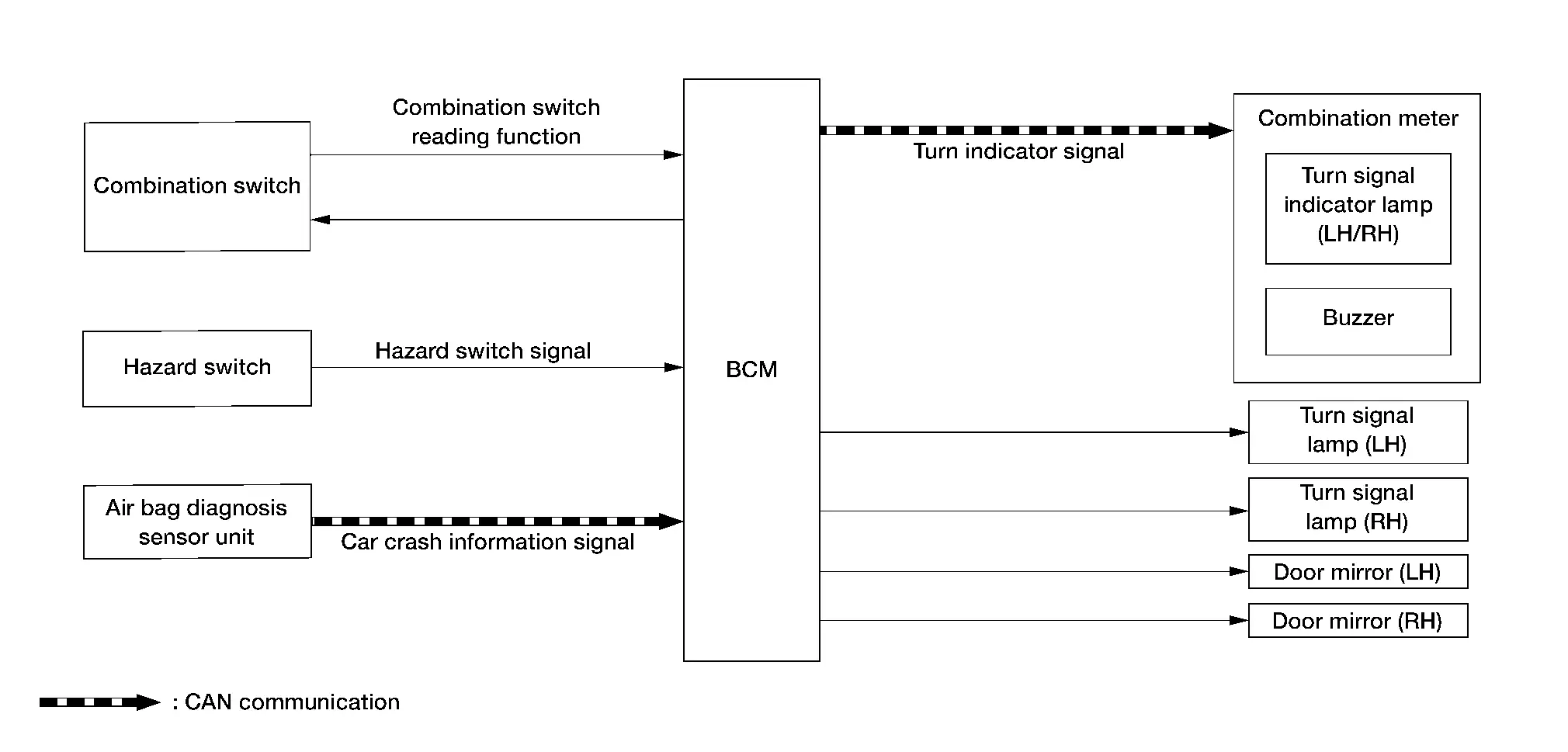
| Component | Function | |
|---|---|---|
| Front combination lamp | Front turn signal lamp | BCM supplies power supply to the front turn signal lamp, and blinks the front turn signal lamp. |
| Door mirror | Side turn signal lamp | BCM supplies power supply to the side turn signal lamp, and blinks the side turn signal lamp. |
| Rear combination lamp (body side) | Rear turn signal lamp | BCM supplies power supply to the rear turn signal lamp, and blinks the rear turn signal lamp. |
|
Hazard switch |
Refer to Hazard Switch. | |
| Air bag diagnosis sensor unit | Transmits the car crash information signal to the BCM via CAN communication for the auto hazard function. | |
| BCM |
|
|
| Combination meter | Blinks the turn signal indicator lamp and outputs the turn signal operating sound to the meter buzzer according to the status signal from BCM via CAN communication. | |
| Meter buzzer | Outputs the turn signal operating sound according to the signal from the combination meter. | |
| Combination switch | Lighting and turn signal switch | Inputs each switch condition signal to the BCM. |
OUTLINE
Turn signal lamp and hazard warning lamp are controlled by the combination switch reading function and the flasher control function of the BCM.
Signal transmission function list
| Signal name | Input | Output | Description |
|---|---|---|---|
| Combination switch signal | Combination switch | BCM | Transmits the combination switch signal to the BCM. |
| Hazard switch signal | Hazard switch | BCM | Transmits the hazard switch signal to the BCM. |
| Car crash information signal | Air bag diagnosis sensor unit | BCM (CAN) | Transmits the car crash information signal via CAN communication. |
| Turn indicator signal | BCM | Combination meter (CAN) | Transmits the turn indicator signal via CAN communication. |
TURN SIGNAL LAMP OPERATION
-
BCM detects the combination switch (lighting and turn signal switch) condition by the combination switch reading function.
-
BCM supplies voltage to the left or right turn signal lamp circuit when the ignition switch is ON and the turn signal switch is in the left or right position. BCM blinks the turn signal lamp.
HAZARD WARNING LAMP OPERATION
BCM supplies voltage to both turn signal lamp circuits when the hazard switch is ON. BCM blinks the hazard warning lamp.
TURN SIGNAL INDICATOR LAMP AND TURN SIGNAL SOUND OPERATION
-
BCM transmits the turn indicator signal to the combination meter via CAN communication while the turn signal lamp and the hazard warning lamp are operating.
-
Combination meter outputs the turn signal sound to the meter buzzer while blinking the turn signal indicator lamp according to the turn indicator signal.
-
Meter buzzer outputs the turn signal sound according to the signal from the combination meter.
3-TIME FLASHER FUNCTION
-
By a short touch of the turn signal lever, the BCM blinks the turn signal lamps 3 times in the selected direction.
-
Cancels operation with a short touch of the turn signal lever in the reverse direction during the 3-time flasher function operation.
 NOTE:
NOTE:
The flasher setting of 3-time flasher function can be changed using CONSULT. Refer to CONSULT Function (BCM - BCM).
HIGH FLASHER OPERATION
-
BCM detects the turn signal lamp circuit status from the current value.
-
BCM increases the turn signal lamp blinking speed if the lamp or harness open is detected with the turn signal lamp operating.
 NOTE:
NOTE:
The blinking speed is normal while operating the hazard warning lamp.
AUTO HAZARD FUNCTION
-
The air bag diagnosis sensor unit transmits a car crash information signal to the BCM via CAN communication, when the air bag diagnosis sensor unit detects strong impact to the Nissan Pathfinder vehicle body while ignition switch is ON.
-
When a car crash information signal from the air bag diagnosis sensor unit is detected, the BCM supplies voltage to each turn signal lamp and the hazard lamp blinks.
Parking, License Plate, Side Marker and Tail Lamp System
System Description
SYSTEM DIAGRAM
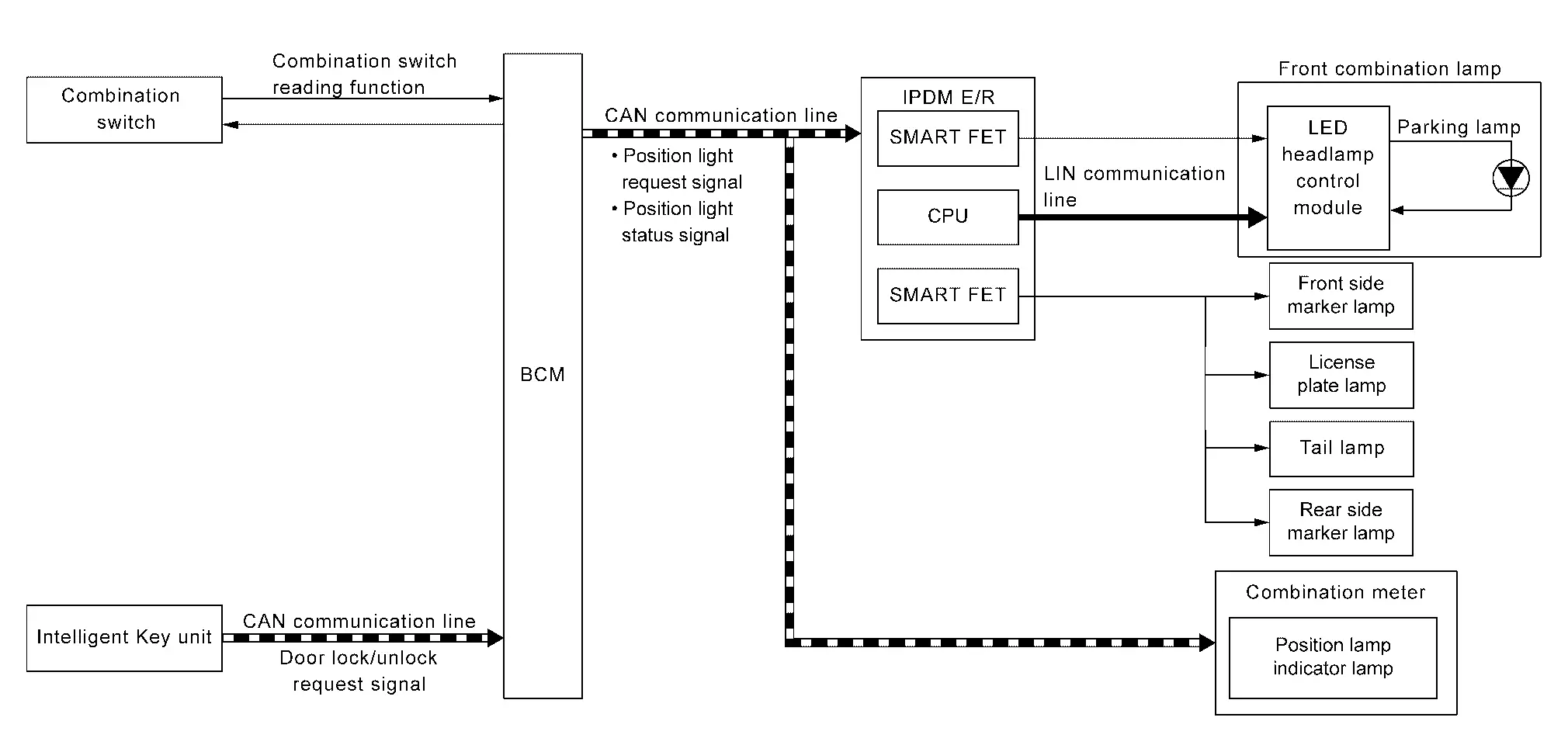
| Component | Function | |
|---|---|---|
| Front combination lamp | Parking lamp | LED headlamp control module supplies power supply to the parking lamp, and turns the parking lamp ON. |
| Front side marker lamp | IPDM E/R supplies power supply to the front side marker lamp, and turns the front side marker lamp ON. | |
| LED headlamp control module | Refer to LED Headlamp Control Module. | |
| Rear combination lamp (body side) | Tail lamp | IPDM E/R supplies power supply to the tail lamp, and turns the tail lamp ON. |
| Rear side marker lamp | IPDM E/R supplies power supply to the rear side marker lamp, and turns the rear side marker lamp ON. | |
| Rear combination lamp (back door side) | Tail lamp | IPDM E/R supplies power supply to the tail lamp, and turns the tail lamp ON. |
| License plate lamp | IPDM E/R supplies power supply to the license plate lamp, and turns the license plate lamp ON. | |
| IPDM E/R |
|
|
| BCM |
|
|
| Combination meter | Turns the position lamp indicator lamp ON/OFF according to the status from the BCM via CAN communication. | |
| Intelligent Key unit | Transmits the door lock/unlock request signal to the BCM via CAN communication from door lock/unlock button operation. | |
| Combination switch | Lighting and turn signal switch | Inputs the each switch condition signal to the BCM. |
OUTLINE
Parking, license plate, side marker and tail lamps are controlled by the combination switch reading function, parking, license plate, side marker and tail lamp control function of the BCM, and the Smart FET control function and LIN communication function of the IPDM E/R.
Signal transmission function list
| Signal name | Input | Output | Description |
|---|---|---|---|
| Combination switch signal | Combination switch | BCM | Transmits the combination switch signal to the BCM. |
| Door lock/unlock request signal | Intelligent Key unit | BCM (CAN) | Transmits the door lock/unlock request signal via CAN communication. |
| Position light request signal | BCM | IPDM E/R (CAN) | Transmits the position light request signal via CAN communication. |
| Position light status signal | BCM | Combination meter (CAN) | Transmits position light status signal via CAN communication. |
PARKING, LICENSE PLATE, SIDE MARKER AND TAIL LAMPS OPERATION
-
BCM detects the combination switch (lighting and turn signal switch) condition by the combination switch reading function.
-
BCM transmits the position light request signal to the IPDM E/R and position light status signal to the combination meter via CAN communication according to the parking, license plate, side marker and tail lamps ON condition.
Parking, license plate, side marker and tail lamp ON condition (when any of the following conditions are satisfied):
-
Lighting switch 1ST
-
Lighting switch 2ND
-
Lighting switch AUTO (only when the illumination judgement by auto light function is ON). Refer to System Description.
-
-
IPDM E/R turns the integrated Smart FET ON and turns the license plate, side marker and tail lamps ON according to the position light request signal.
-
IPDM E/R turns the integrated Smart FET ON according to position light request signal, and transmits the control signal to the LED headlamp control module.
-
IPDM E/R transmits the request signal to the LED headlamp control module via LIN communication according to the position light request signal.
-
LED headlamp control module turns the parking lamp ON according to the control signal and request from the IPDM E/R via LIN communication.
-
Combination meter turns the position lamp indicator lamp ON according to the position light status signal.
 NOTE:
NOTE:
When headlamp is turned ON while parking, license plate, side marker and tail lamp are ON the position lamp indicator lamp turns OFF (full TFT meter models).
SIGNATURE LIGHT FUNCTION
Description
The signature light function is a function that turns ON the parking lamp, license plate lamp, side marker lamp and tail lamp for a set period of time when the doors are locked or unlocked from outside the Nissan Pathfinder vehicle.
Operation Description
BCM transmits the position light request signal to the IPDM E/R and position light status signal to the combination meter via CAN communication according to the signature light function ON condition.
Signature light function ON condition (operation when doors are unlocked):
-
When all of the following conditions are satisfied, the signature light function operates when door unlock operation is performed from outside the Nissan Pathfinder vehicle (Intelligent Key, door request switch, etc.):
-
Ignition switch: OFF
-
Door open/close status: All door close
-
Door lock status: All door lock
-
-
When any of the following conditions are satisfied while the signature light function is operating, the signature light function stops:
-
Ignition switch: ON
-
Since signature light function ON, approx. 30 seconds are passed.
 NOTE:
NOTE:
When door lock operation is performed with the Intelligent Key or door request switch, the system changes to operation when the doors are locked.
-
Signature light function ON condition (operation when doors are locked):
-
When all of the following conditions are satisfied, the signature light function operates when door lock operation is performed from outside the Nissan Pathfinder vehicle (Intelligent Key or door request switch, etc.):
-
Ignition switch: OFF
-
Door open/close status: All door close
-
-
When any of the following conditions are satisfied while the signature light function is operating, the signature light function stops:
-
Ignition switch: ON
-
Since signature light function ON, approx. 15 seconds are passed.
 NOTE:
NOTE:
When door unlock operation is performed with the Intelligent Key or door request switch, the system changes to operation when doors are unlocked.
-
Stop Lamp System
System Description
SYSTEM DIAGRAM
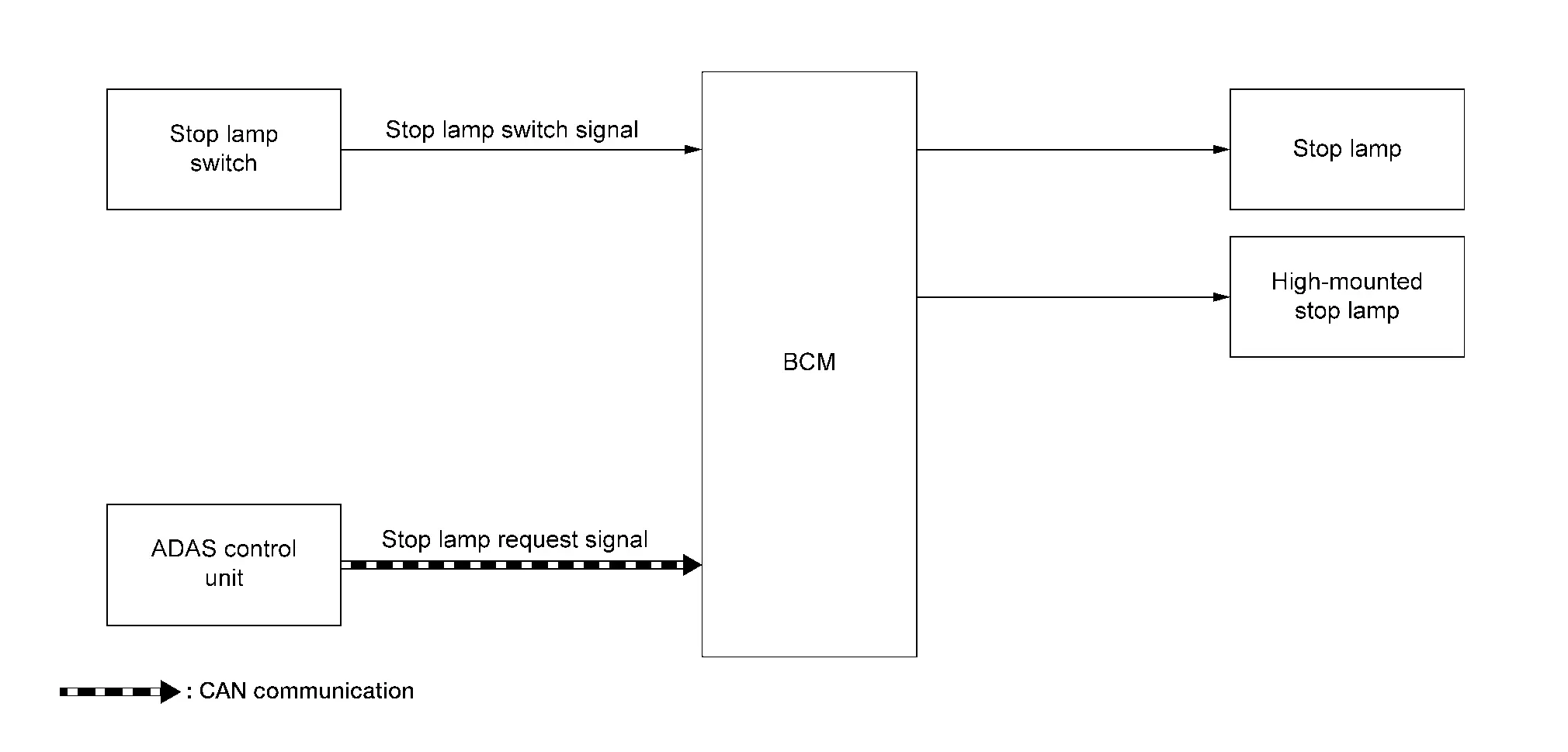
| Component | Function | |
|---|---|---|
| Rear combination lamp (body side) | Stop lamp | BCM supplies power supply to the stop lamp, and turns the stop lamp ON or blinks. |
| High-mounted stop lamp | BCM supplies power supply to the high-mounted stop lamp, and turns the high-mounted stop lamp ON or blinks. | |
| Stop lamp switch | Refer to Stop Lamp Switch. | |
| BCM | Judges the Nissan Pathfinder vehicle status from each signal, and turns the stop lamp and high-mounted stop lamp ON or blinks. | |
| ADAS control unit | When the AEB system operates, a request is transmitted to the BCM via CAN communication to turn ON the stop lamp. | |
OUTLINE
Stop lamp and high-mounted stop lamp are controlled by the stop lamp switch reading function and the stop lamp and high-mounted stop lamp control function of the BCM, and the AEB (Automatic Emergency Braking) function of the ADAS control unit.
Signal transmission function list
| Signal name | Input | Output | Description |
|---|---|---|---|
| Stop lamp switch signal | Stop lamp switch | BCM | Transmits the stop lamp switch signal to the BCM. |
| Stop lamp request signal | ADAS control unit | BCM (CAN) | Transmits the stop lamp request signal via CAN communication. |
STOP LAMP AND HIGH-MOUNTED STOP LAMP OPERATION
-
BCM detects the brake pedal position status from the stop lamp switch.
-
BCM supplies voltage to stop lamp and high-mounted stop lamp according to the stop lamp and high-mounted stop lamp ON condition.
Stop lamp and high-mounted stop lamp ON condition:
-
Brake pedal is depressed
-
AUTOMATIC EMERGENCY BRAKING FUNCTION
-
When the AEB system operates, the ADAS control unit transmits the stop lamp request signal to the BCM via CAN communication (for details about the AEB system, refer to System Description).
-
When the BCM receives the stop lamp request signal from the ADAS control unit, it supplies voltage to the stop lamp and high-mounted stop lamps, turning ON the stop lamp and high-mounted stop lamp.
Front Fog Lamp System
System Description
SYSTEM DIAGRAM
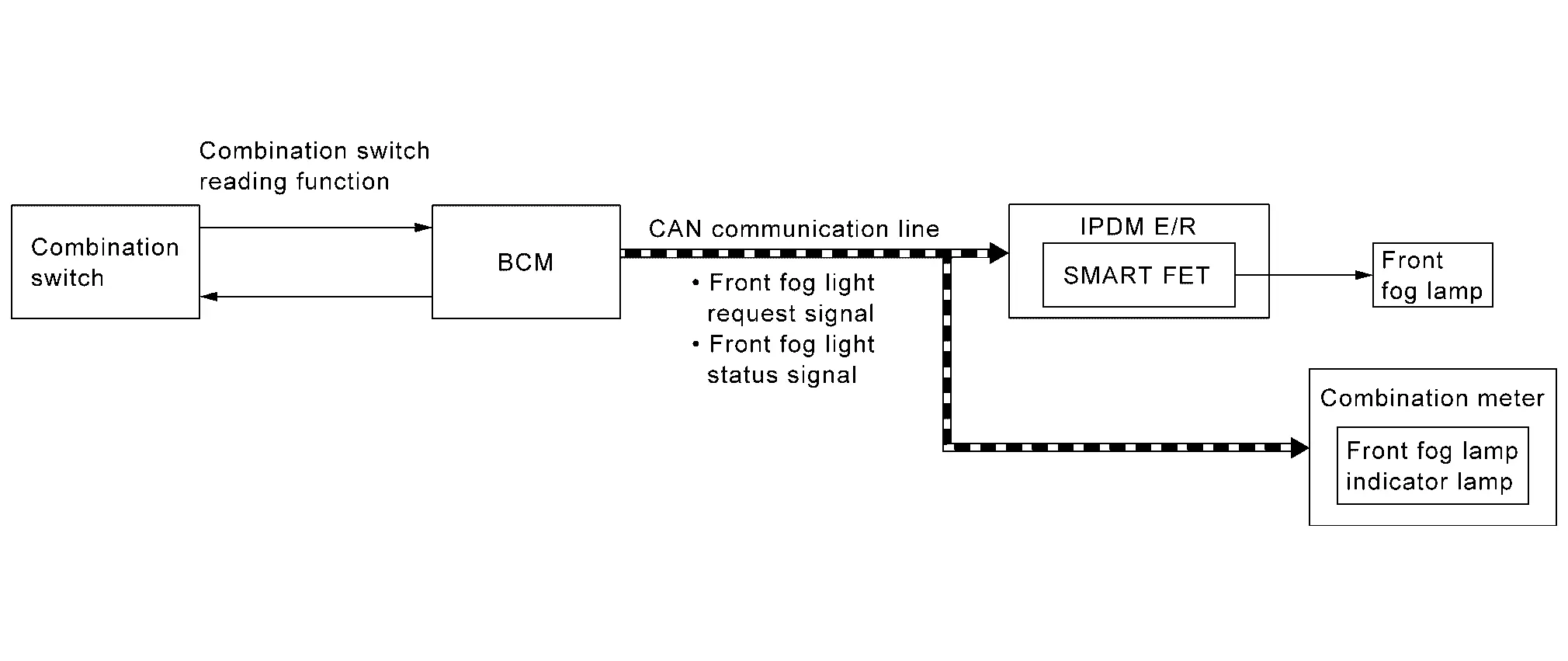
| Component | Function | |
|---|---|---|
| Front fog lamp | IPDM E/R supplies power supply to the front fog lamp, and turns the front fog lamp ON. | |
| IPDM E/R | Controls the integrated Smart FET, and supplies voltage to the front fog lamp according to the request from the BCM via CAN communication. | |
| BCM |
|
|
| Combination meter | Turns the front fog lamp indicator lamp ON/OFF according to the status signal from the BCM via CAN communication. | |
| Combination switch | Lighting and turn signal switch | Inputs the each switch condition signal to the BCM. |
OUTLINE
Front fog lamp is controlled by the combination switch reading function and front fog lamp control function of the BCM, and the Smart FET control function of the IPDM E/R.
Signal transmission function list
| Signal name | Input | Output | Description |
|---|---|---|---|
| Combination switch signal | Combination switch | BCM | Transmits the combination switch signal to the BCM. |
| Front fog light request signal | BCM | IPDM E/R (CAN) | Transmits the front fog light signal via CAN communication. |
| Front fog light status signal | BCM | Combination meter (CAN) | Transmits the front fog light status signal via CAN communication. |
FRONT FOG LAMP OPERATION
-
BCM detects the combination switch (lighting and turn signal switch) condition by the combination switch reading function.
-
BCM transmits the front fog light request signal to the IPDM E/R and front fog light status signal to the combination meter via CAN communication according to the front fog lamp ON condition.
Front fog lamp ON condition:
-
Front fog lamp switch ON, and any of the following conditions are satisfied:
-
Lighting switch 2ND
-
Lighting switch AUTO (only when the illumination judgement by auto light function is ON). Refer to System Description.
-
-
-
IPDM E/R turns the integrated Smart FET ON, and turns the front fog lamp ON according to the front fog light request signal.
-
Combination meter turns the front fog lamp indicator lamp ON according to the front fog light status signal.
Back-Up Lamp System
System Description
SYSTEM DIAGRAM
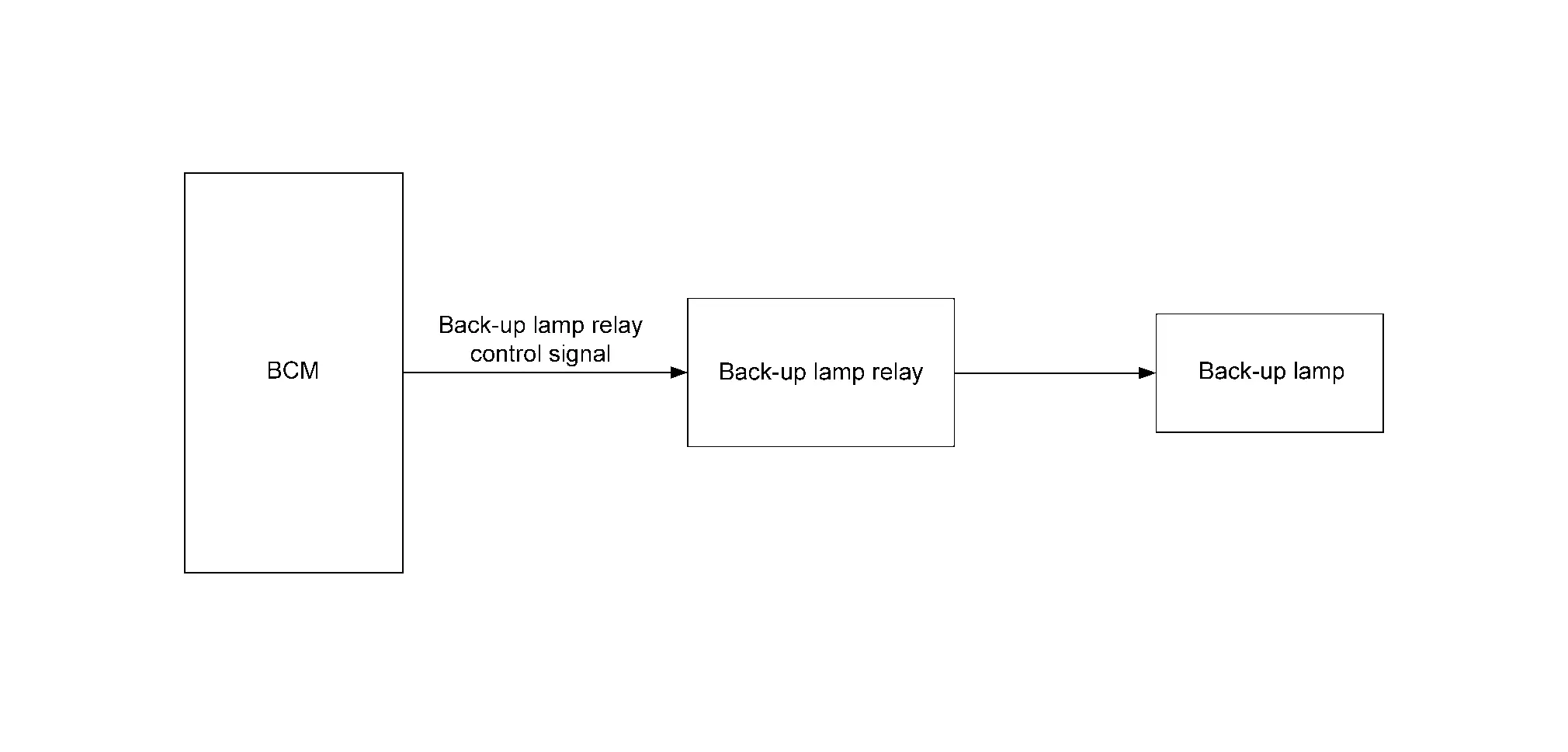
| Component | Function | |
|---|---|---|
| Rear combination lamp (back door side) | Back-up lamp | BCM controls to back-up lamp relay, and turns the back-up lamp ON. |
| Back-up lamp relay | Supplies voltage to the back-up lamp with the control from the BCM. | |
| BCM | Controls the back-up lamp relay. | |
OUTLINE
Back-up lamp is controlled by the back-up lamp control function of the BCM.
BACK-UP LAMP OPERATION
-
BCM turns the back-up lamp relay ON, and turns the back-up lamp ON when the back-up lamp ON conditions are satisfied.
Back-up lamp ON condition (when all of the following conditions are satisfied):
-
Engine running
-
Shift selector R range
-
Exterior Lamp Battery Saver System
System Description
SYSTEM DIAGRAM
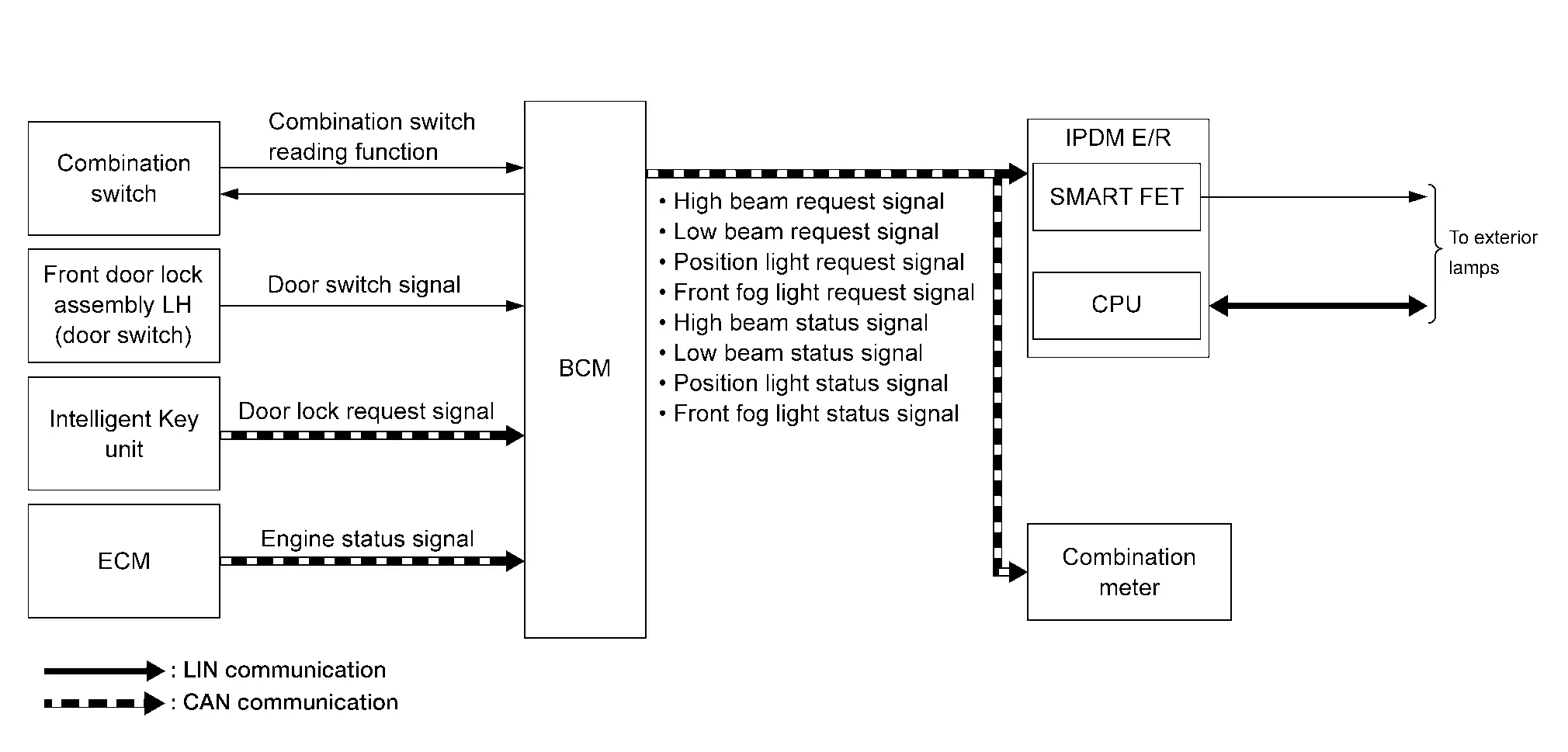
| Component | Function | |
|---|---|---|
| IPDM E/R |
|
|
| BCM |
|
|
| Combination meter | Turns the indicator lamp ON/OFF or displays the indicator according to the status signal from the BCM via CAN communication. | |
| Front door lock assembly LH (door switch) | Detects the front door condition (open or closed), and transmits the door switch signal to the BCM. | |
| Intelligent Key unit | Transmits the door lock request signal to the BCM via CAN communication from door lock button operation. | |
| ECM | Transmits engine status signal to the BCM via CAN communication. | |
| Combination switch | Lighting and turn signal switch | Inputs the each switch condition signal to the BCM. |
OUTLINE
-
Exterior lamp battery saver system is controlled by the combination switch reading function and exterior lamp battery saver function of the BCM, and the Smart FET control function of the IPDM E/R.
-
BCM turns the exterior lamp* OFF, according to the Nissan Pathfinder vehicle status when ignition switch is placed OFF while the exterior lamp is ON, to prevent battery discharge.
*: Headlamp (LO/HI), front fog lamp, parking lamp, license plate lamp, side marker lamp and tail lamp
Signal transmission function list
| Signal name | Input | Output | Description |
|---|---|---|---|
| Combination switch signal | Combination switch | BCM | Transmits the combination switch signal to the BCM. |
| Door switch signal | Front door lock assembly LH (door switch) | BCM | Transmits the door switch signal to the BCM. |
| Door lock request signal | Intelligent Key unit | BCM (CAN) | Transmits the door lock request signal via CAN communication. |
| Engine status signal | ECM | BCM (CAN) | Transmits the engine status signal via CAN communication. |
| High beam request signal | BCM | IPDM E/R (CAN) | Transmits the high beam request signal via CAN communication. |
| Low beam request signal | BCM | IPDM E/R (CAN) | Transmits the low beam request signal via CAN communication. |
| Position light request signal | BCM | IPDM E/R (CAN) | Transmits the position light request signal via CAN communication. |
| Front fog light request signal | BCM | IPDM E/R (CAN) | Transmits the front fog light request signal via CAN communication. |
| High beam status signal | BCM | Combination meter (CAN) | Transmits the high beam status signal via CAN communication. |
| Low beam status signal | BCM | Combination meter (CAN) | Transmits the low beam status signal via CAN communication. |
| Position light status signal | BCM | Combination meter (CAN) | Transmits the position light status signal via CAN communication. |
| Front fog light status signal | BCM | Combination meter (CAN) | Transmits the front fog light status signal via CAN communication. |
EXTERIOR LAMP BATTERY SAVER ACTIVATION
-
BCM turns the exterior lamps OFF (battery saver is activated) when the exterior lamp ON, engine status is running to stop (ignition switch OFF) and any of the following conditions are satisfied:
-
After 60 seconds passed
-
Front door LH is moved from CLOSED to OPEN [door switch OFF to ON]
-
Door lock operation (operate with Intelligent Key, door request switch etc.)
-
-
When in any of the following conditions are satisfied (after the exterior lamp battery saver is activated), exterior lamps can be turned ON:
-
Ignition switch is placed from OFF => Other than OFF
-
Lighting switch is changed
-
Front fog lamp switch is changed
-
Light Reminder Warning System
System Description
SYSTEM DIAGRAM
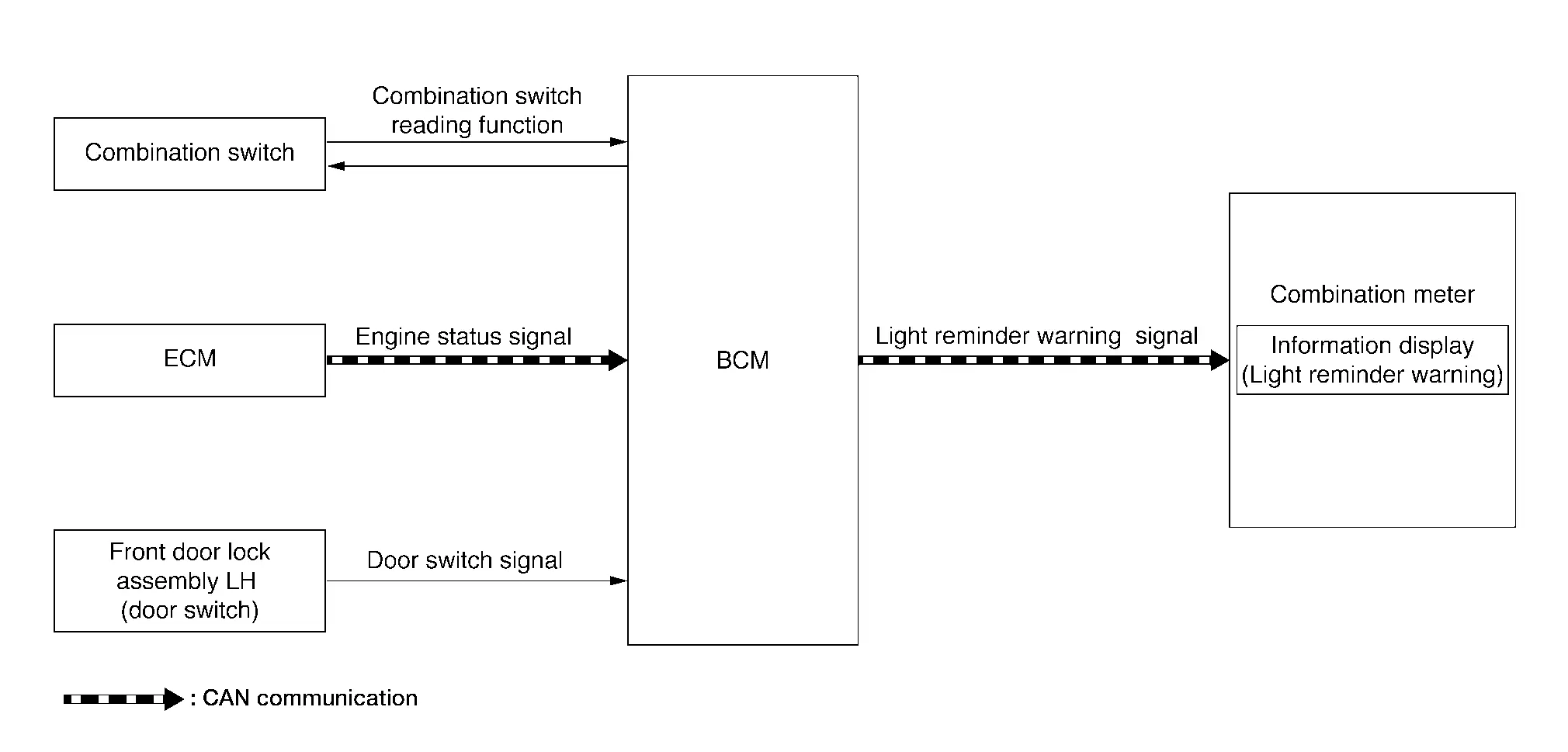
Signal transmission function list
| Signal name | Input | Output | Description |
|---|---|---|---|
| Combination switch signal | Combination switch | BCM | Transmits the combination switch signal to the BCM. |
| Engine status signal | ECM | BCM (CAN) | Transmits the engine status signal via CAN communication. |
| Door switch signal | Front door lock assembly (door switch) | BCM | Transmits the door switch signal to the BCM. |
| Light reminder warning signal | BCM | Combination meter (CAN) | Transmits the light reminder warning signal via CAN communication. |
DESIGN/PURPOSE
When the driver is exiting the vehicle while engine status is other than running and lamps are ON, the light reminder warning displays a warning in the information display to alert the driver.
| Symbol | Message |
|---|---|
|
|
Reminder Turn OFF Headlights |
| Symbol | Message |
|---|---|
|
|
Reminder Turn OFF Headlights |
SYNCHRONIZATION WITH MASTER WARNING LAMP
Not applicable
SYNCHRONIZATION WITH WARNING CHIME
Synchronization is applied.
For warning chime. Refer to System Description.
OPERATION AT COMBINATION METER CAN COMMUNICATION CUT-OFF OR UNUSUAL SIGNAL
For actions on CAN communications blackout in the combination meter, refer to Fail-Safe (full TFT meter) or Fail-Safe (7 inch information display).
SIGNAL PATH
-
BCM reads the status of the combination switch (lighting and turn signal switch).
-
BCM detects the Nissan Pathfinder vehicle condition depending on the engine status signal received by the ECM via CAN communication.
-
BCM judges the light reminder warning using the lighting switch signal, front door lock assembly LH (door switch) signal and engine status signal. BCM transmits the light reminder warning signal to the combination meter via CAN communication.
-
When the combination meter receives the light reminder warning signal, the light reminder warning pop-up screen appears in the information display.
WARNING/INDICATOR OPERATING CONDITION
When all of the following conditions are satisfied:
-
Engine status is other than running
-
Lighting switch 1ST or 2ND
-
Front door LH OPEN [front door lock assembly (door switch) ON]
WARNING/INDICATOR CANCEL CONDITION
When any of the following conditions are satisfied:
-
Engine status is running
-
Lighting switch other than 1ST or 2ND
-
Front door LH CLOSE [front door lock assembly (door switch) OFF]
TIMING CHART
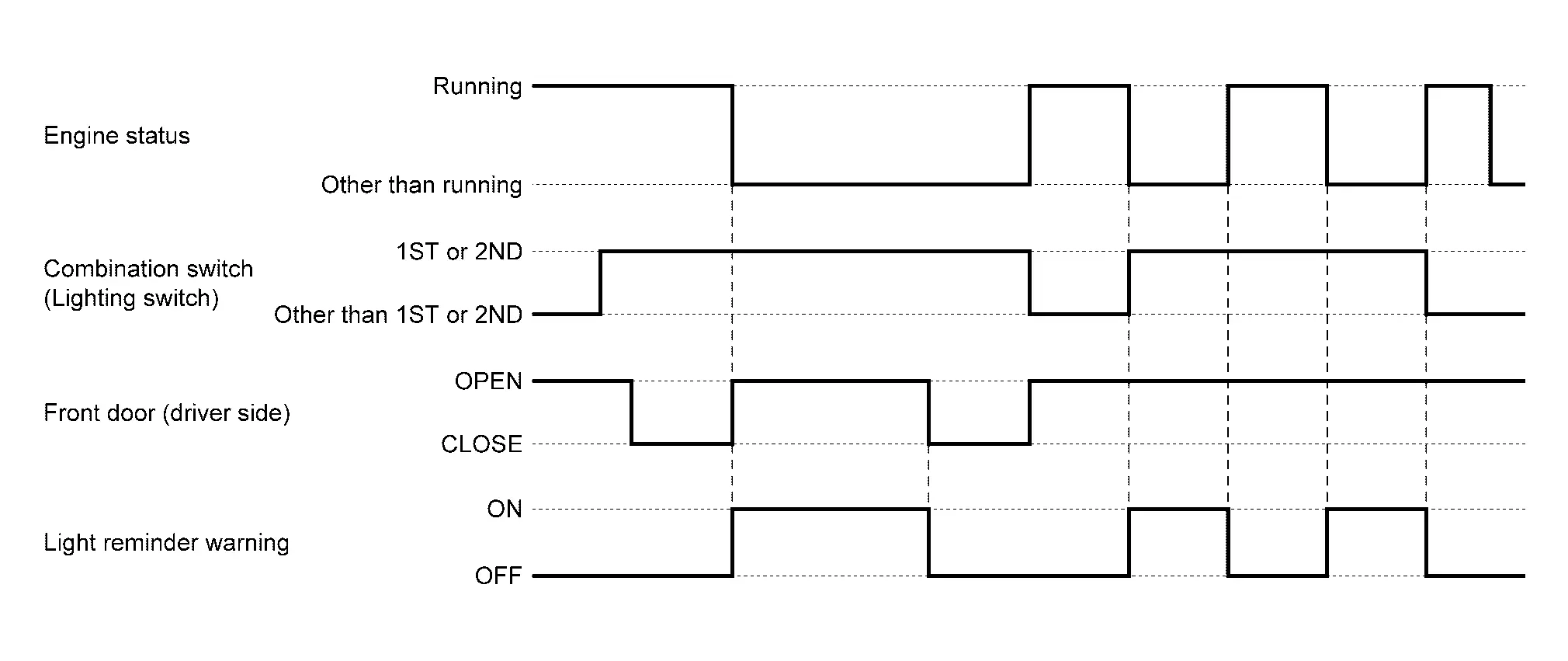
Headlamp Warning System
System Description
SYSTEM DIAGRAM
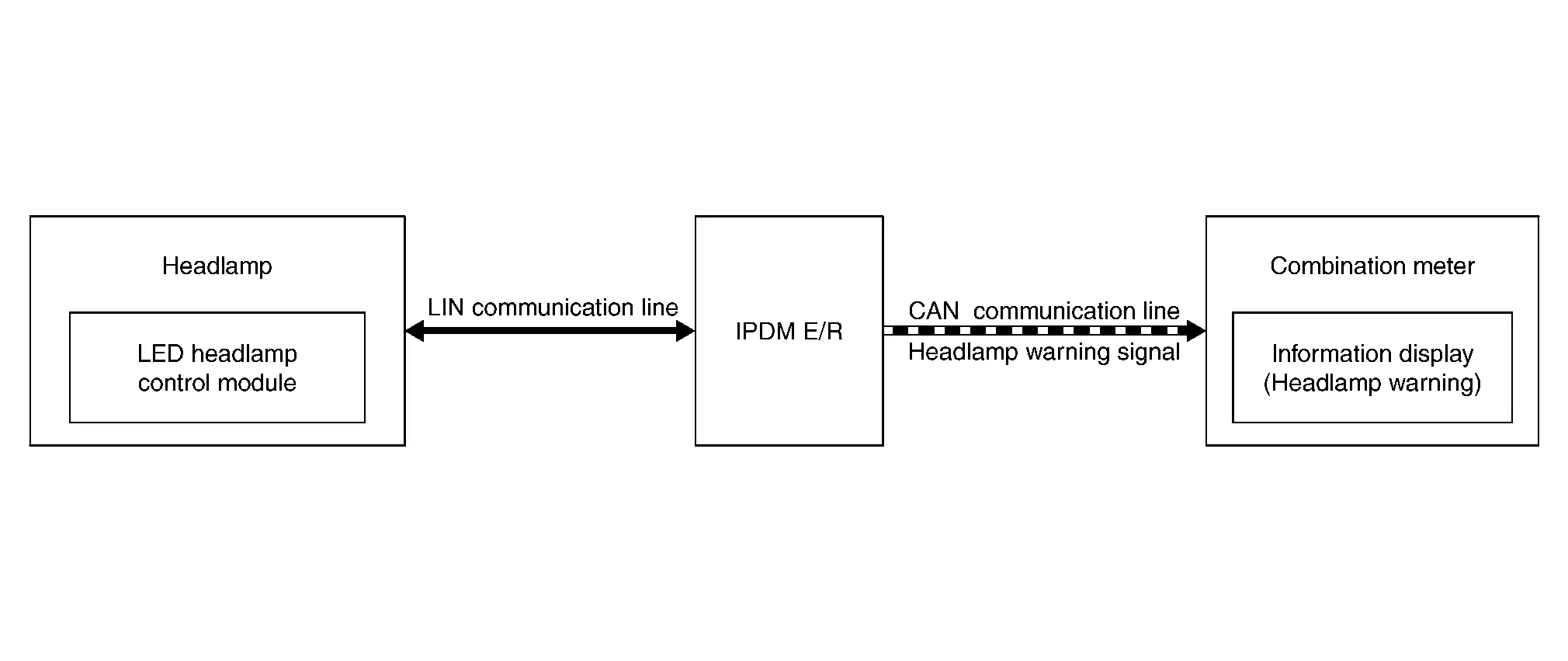
Signal transmission function list
| Signal name | Input | Output | Description |
|---|---|---|---|
| Headlamp warning signal | LED headlamp control module | Combination meter (CAN) | Inputs the headlamp warning signal via LIN communication, and transmits it via CAN communication. |
DESIGN/PURPOSE
Headlamp warning warns the driver that there is a malfunction in the LED headlamp system.
| Symbol | Message |
|---|---|
| — |
Headlight System Error See Owner′s Manual |
SYNCHRONIZATION WITH MASTER WARNING LAMP
Synchronization is applied.
OPERATION AT COMBINATION METER CAN COMMUNICATION CUT-OFF OR UNUSUAL SIGNAL
For actions on CAN communications blackout in the combination meter, refer to Fail-Safe (full TFT meter) or Fail-Safe (7 inch information display).
SIGNAL PATH
-
When the LED headlamp control module detects a malfunction of the headlamp (LO) circuit, the headlamp warning signal is transmitted to the IPDM E/R via LIN communication.
-
When the IPDM E/R receives the headlamp warning signal via LIN communication or the IPDM E/R detects a malfunction of LIN communication, the IPDM E/R transmits the headlamp warning signal to the combination meter via CAN communication.
-
When the ignition switch is ON and the combination meter receives the headlamp warning signal from the IPDM E/R via CAN communication, the combination meter displays the headlamp warning on the information display.
WARNING/INDICATOR OPERATING CONDITION
When all of the following conditions are satisfied:
-
Ignition switch ON
-
Headlamp warning signal via CAN communication is ON
WARNING/INDICATOR CANCEL CONDITION
When any of the following conditions are satisfied:
-
Ignition switch other than ON
-
Headlamp warning signal via CAN communication is OFF
TIMING CHART
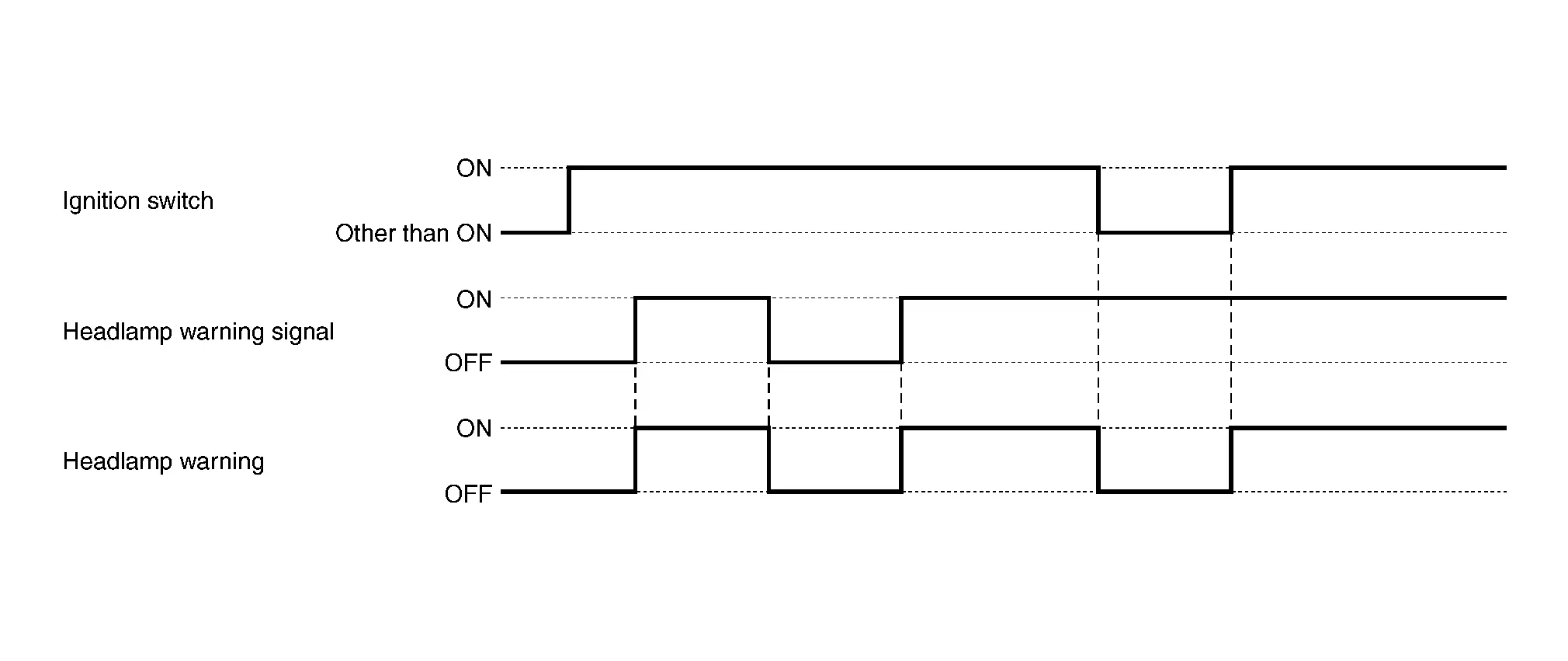
Trailer Tow System
System Description
SYSTEM DIAGRAM
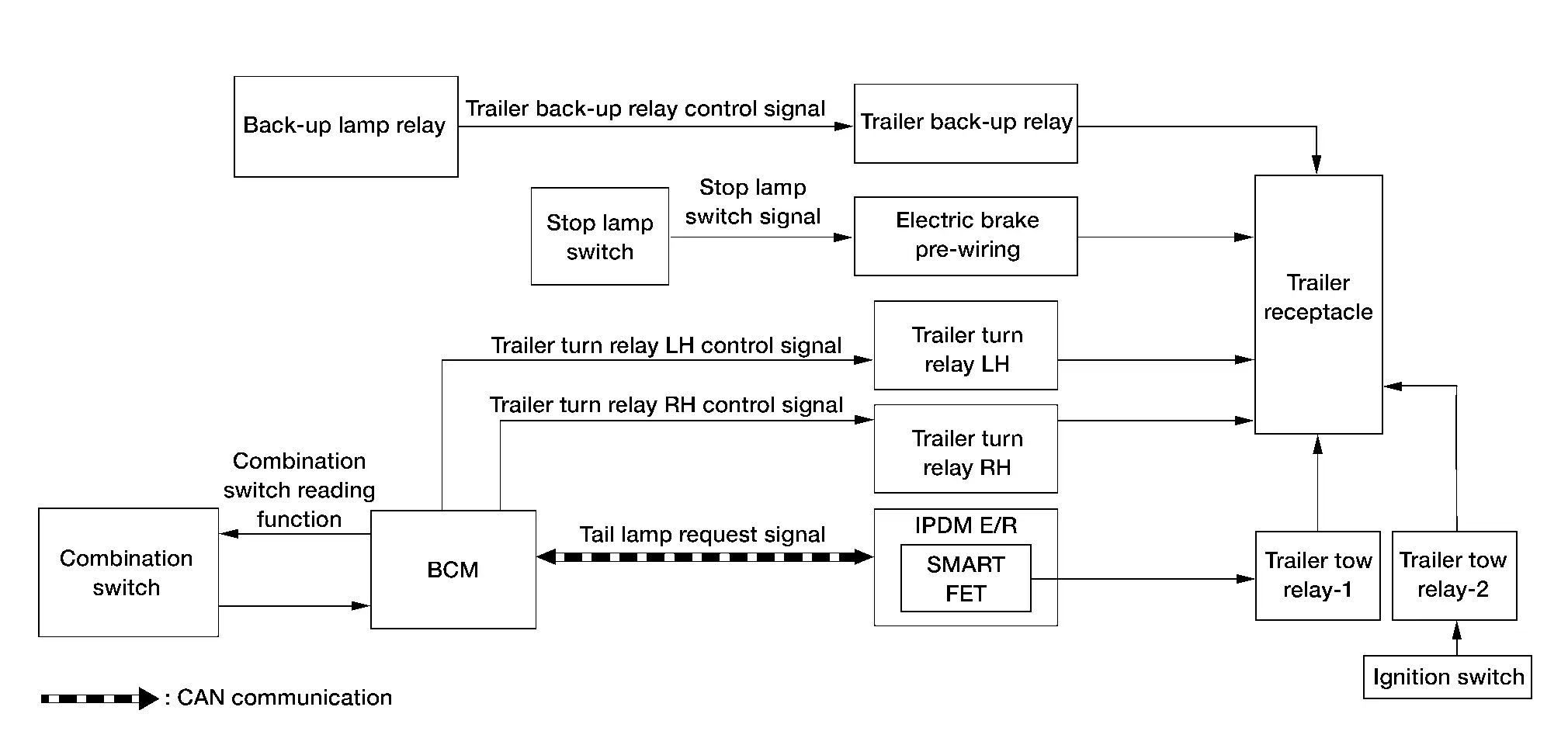
Signal transmission function list
| Signal name | Input | Output | Description |
|---|---|---|---|
| Combination switch signal | Combination switch | BCM | Transmits the combination switch signal to the BCM. |
| Tail lamp request signal | BCM | IPDM E/R (CAN) | Transmits the tail lamp request signal via CAN communication. |
| Stop lamp switch signal | Stop lamp switch | Electric brake pre-wiring | Transmits the stop lamp switch signal to the electric brake pre-wiring. |
TRAILER TAIL LAMP OPERATION
The trailer tail lamps are controlled by the trailer tow relay-1. With the combination switch (lighting and turn signal switch) in the 1ST position, the BCM detects lighting switch 1ST. The BCM sends a tail lamp request signal to the IPDM E/R via CAN communication. The IPDM E/R then turns the integrated Smart FET ON and turns the trailer tow relay-1 ON according to the tail lamp request signal.
TRAILER TURN SIGNAL LAMP OPERATION
The trailer turn signal lamps are controlled by the BCM. When the combination switch (lighting and turn signal switch) is in the LH or RH position with the ignition switch ON, the combination switch (lighting and turn signal switch) sends a signal to the BCM. The BCM detects the TURN RH or TURN LH ON request. The BCM sends a control signal to the respective trailer turn relay which sends power to the trailer receptacle.
TRAILER HAZARD LAMP OPERATION
The trailer hazard lamps are controlled by the BCM. When the hazard switch is pressed, the BCM detects the hazard ON request. The BCM then sends a control signal to both trailer turn relays which sends power to the trailer receptacle.
TRAILER BRAKE LAMP OPERATION
The trailer brake lamps operate when the brake pedal is pressed sending the stop lamp switch signal to the trailer receptacle.
TRAILER BACK-UP LAMP OPERATION
The trailer back-up lamps are controlled by the trailer back-up relay. When the shift selector is in R with the ignition switch ON, the back-up lamp relay supplies power to the trailer back-up relay which sends power to the trailer receptacle.
Diagnosis System (bcm) Nissan Pathfinder 2022
Common Item
CONSULT Function (BCM - COMMON ITEM)
| BCM | Refer to CONSULT Function (BCM - COMMON ITEM). |
Head Lamp
CONSULT Function (BCM - HEAD LAMP)
| BCM | Refer to CONSULT Function (BCM - HEAD LAMP). |
Flasher
CONSULT Function (BCM - FLASHER)
| BCM | Refer to CONSULT FUnction (BCM - FLASHER). |
Comb Sw
CONSULT Function (BCM - COMB SW)
| BCM | Refer to CONSULT Function (BCM - COMB SW). |
Battery Saver
CONSULT Function (BCM - BATTERY SAVER)
| BCM | Refer to CONSULT Function (BCM - BATTERY SAVER). |
Diagnosis System (ipdm E/r) Nissan Pathfinder Fifth generation
CONSULT Function (IPDM E/R)
| IPDM E/R | Refer to CONSULT Function (IPDM E/R). |

Nissan Pathfinder (R53) 2022-2026 Service Manual
System Description
Contact Us
Nissan Pathfinder Info Center
Email: info@nipathfinder.com
Phone: +1 (800) 123-4567
Address: 123 Pathfinder Blvd, Nashville, TN 37214, USA
Working Hours: Mon–Fri, 9:00 AM – 5:00 PM (EST)

